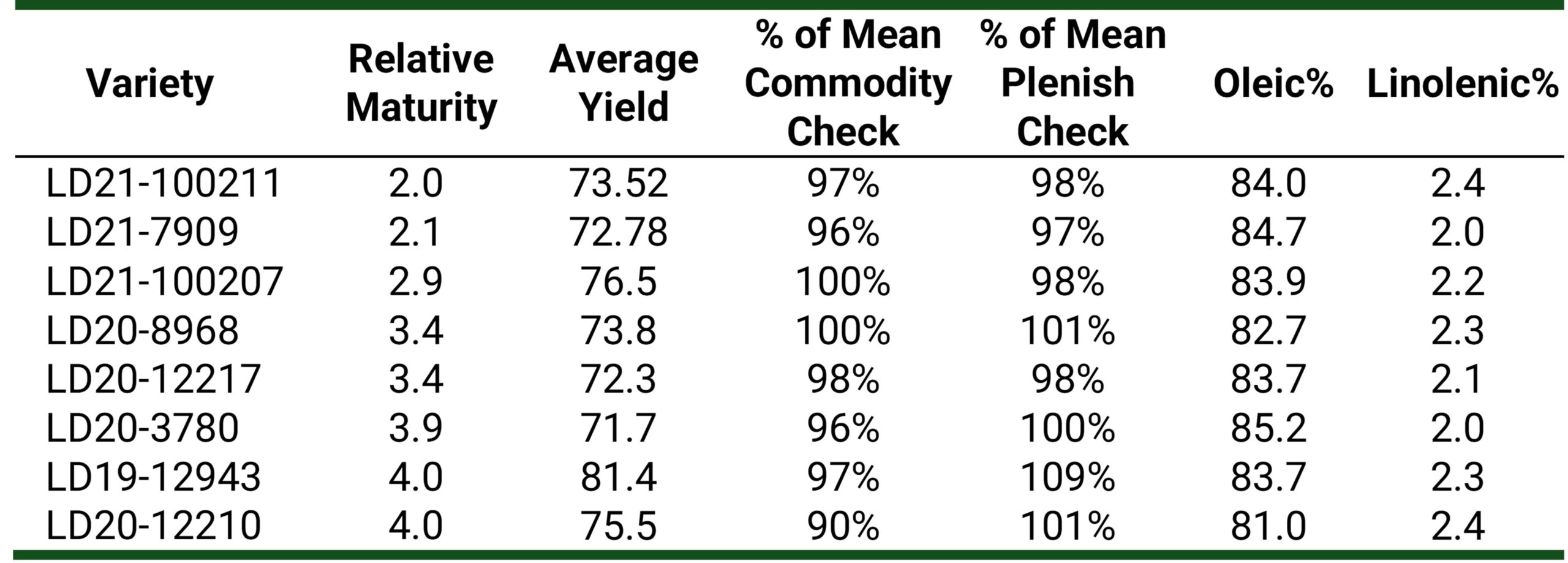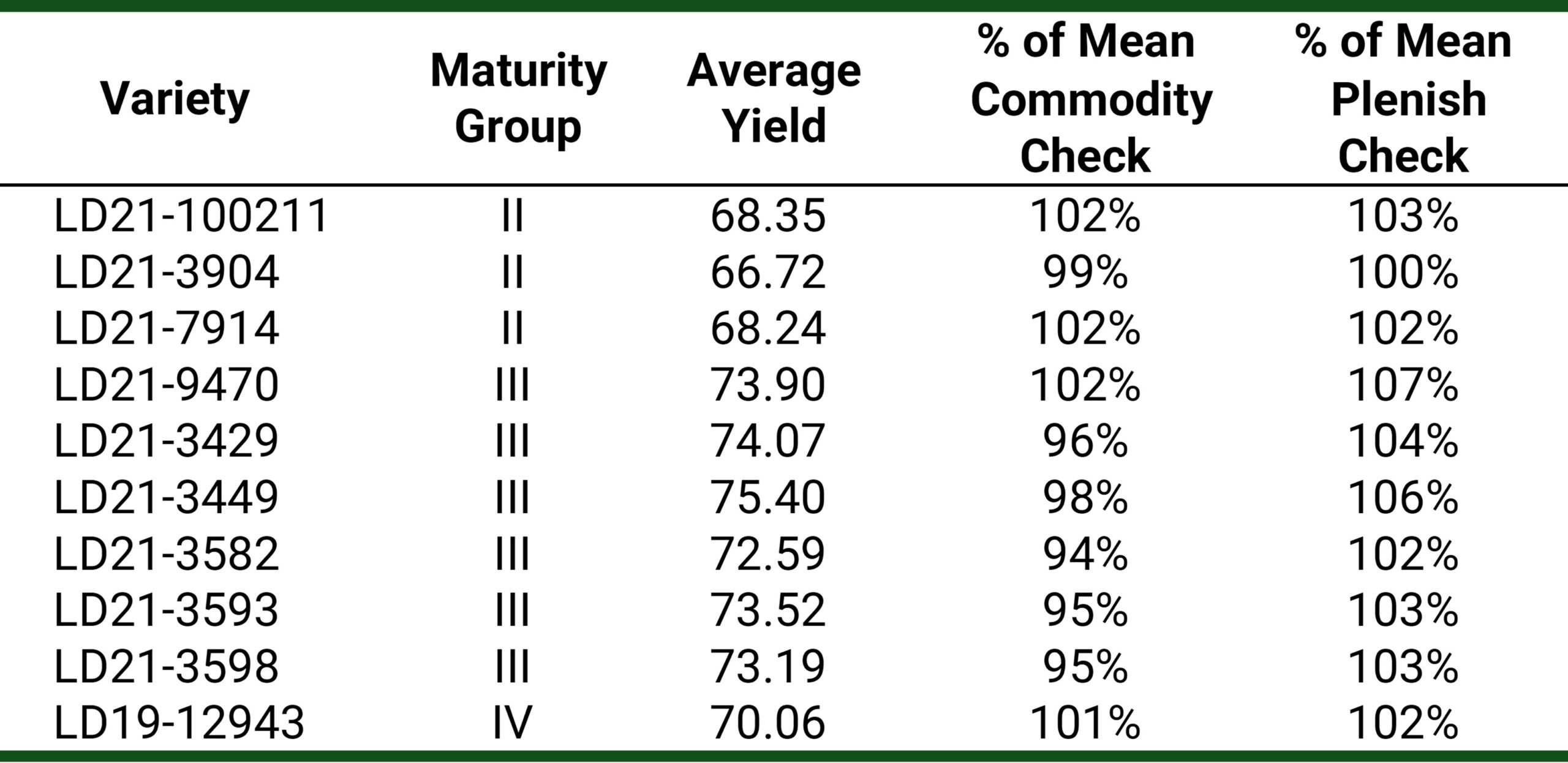Project Leader: Eliana Monteverde, University of Illinois
Purpose: To help farmers achieve better financial outcomes, more soybean varieties with value-added traits are needed to secure higher premiums and expand market opportunities. This research focuses on evaluating and commercializing soybean varieties with improved oil quality to provide growers with new opportunities for growing soybeans that offer added value and to stimulate demand for soybean oil. SOYLEIC soybeans, with over 80 percent oleic acid and less than 3 percent linolenic acid (known as high oleic-low linolenic or HOLL), have oil that is more stable, making them a highly desirable option for food manufacturers and industrial uses like motor oil or jet fuel.
Approach: SOYLEIC varieties are developed using non-GMO breeding techniques. This project expanded the number of locations where SOYLEIC breeding lines are evaluated by the soybean improvement group at the University of Illinois. SOYLEIC varieties have been tested across eleven sites in Illinois, improving the dataset for selecting the highest-performing SOYLEIC varieties.
Results: This research provides farmers with opportunities to grow soybean varieties that earn premiums for being both non-GMOs and having the SOYLEIC trait. In 2025, there should be opportunities to grow SOYLEIC varieties on a contract basis. In future years as the number of varieties increase, these opportunities should expand.
Key Takeaway: All SOYLEIC varieties show yields comparable to both Plenish and high yielding Pioneer checks.

Table 1. Yield performance results from the 2023 regional trials across 10 locations comparing University of Illinois lines, Corteva Plenish (Corteva's genetically modified HOLL soybean) and Pioneer commodity checks. All SOYLEIC varieties show yields comparable to both Plenish and high yielding Pioneer checks.

Table 2. Yield data of 2024 HOLL releases across 10 Illinois locations comparing University of Illinois lines, Corteva Plenish (Corteva's genetically modified HOLL soybean) and Corteva conventional checks. Lines will be increased in Puerto Rico in 2025 and will be available for commercialization in 2026.


 and then
and then